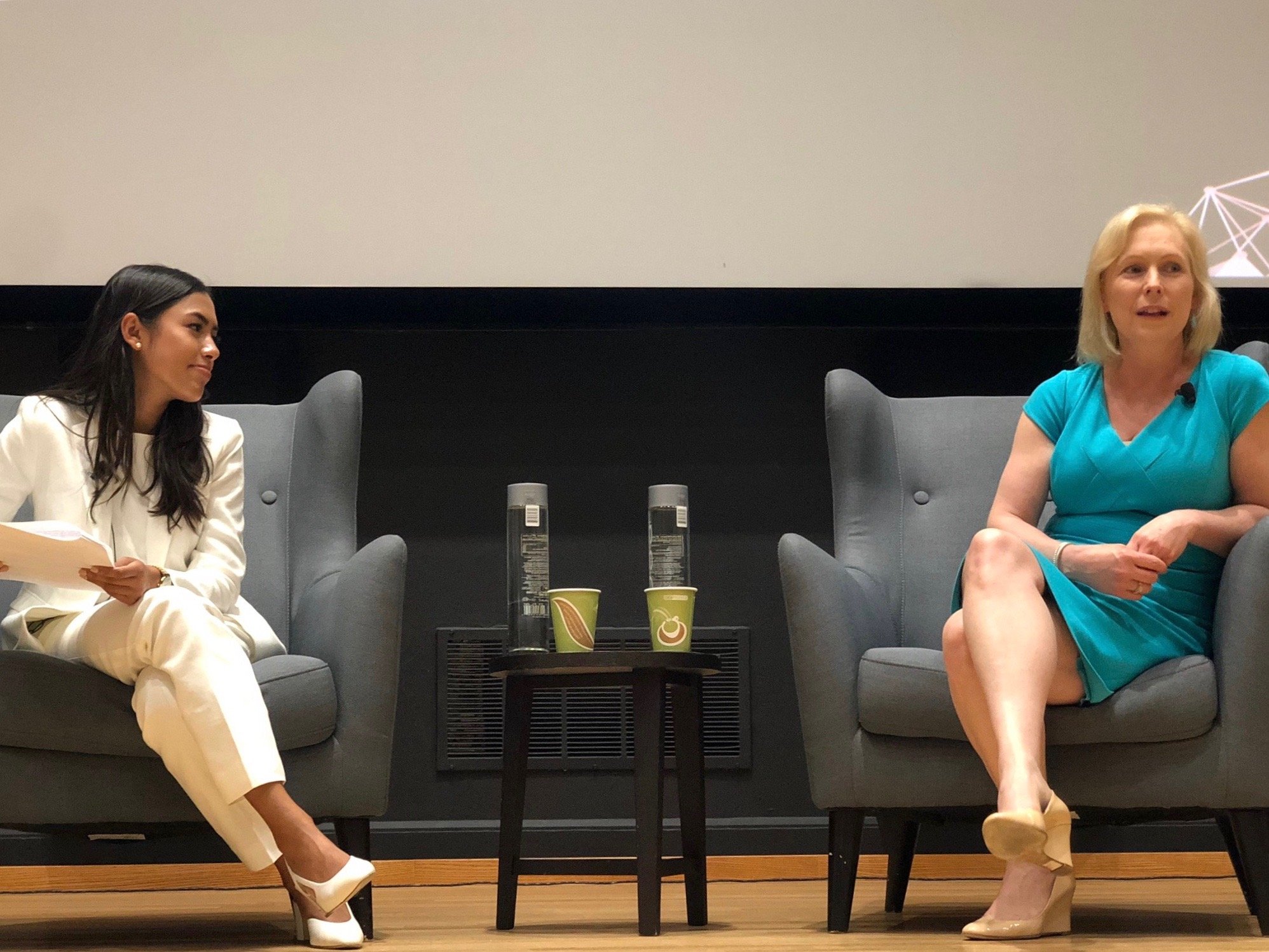The 2018 midterms shook our Congress to its core.
The U.S. House of Representatives elected a record number of women, with at least 90 female candidates making their way to Washington, D.C. in January of this year. In my conversation with Senator Kirsten Gillibrand at the Stanford Women in Business Executive Leadership Series this past Friday, she described such triumphs.
“President Trump has done one thing that I couldn’t imagine anyone could do: he has reinvigorated the women’s movement. Since President Trump has been elected, women have been marching globally. We have more women running for office than ever before. We just flipped the House because 120 women ran for Congress and won – the most diverse class ever. More women of color, more young women, two Muslim women, two Native American women. And it’s changing the country and the world.”
Despite such progress, future female and minority candidates are at risk.
Last week, the Democratic Congressional Campaign Committee (DCCC) – the only political committee in the country whose principal mission is to support Democratic House candidates every step of the way – blacklisted the primary opponents of sitting Democrats. The policy states that the DCCC “will not conduct business with, nor recommend to any of its targeted campaigns, any consultant that works with an opponent of a sitting member of the House Democratic Caucus.” At first glance, this policy may seem to benefit the Democratic party, but in reality, it disproportionately harms women and people of color who seek to enter politics.
“Of the 50 longest-serving House Democrats, two-thirds are white and about the same share are men,” Jennifer Steinhauer of The New York Times writes. “Insurgents are often female, often young and often nonwhite.” Most insurgent Democrats who set their sights on existing Democratic seats are the new kids on the block – like Representatives Ayanna Pressley and Alexandria Ocasio-Cortez, both of whom defeated veteran white male Democrats during the 2018 midterm elections.
The DCCC’s blacklisting of new Democratic candidates signals growing insecurity by establishment Democrats. As a reaction to the historic firsts in 2018, the policy attempts to reinforce the roles of the predominantly white male politicians who already hold seats in government. The blacklisting of new candidates will stifle the political inclusion of diverse voices. In fact, many of the newer and more liberal members of the House have protested the policy, with Representative Ocasio-Cortez tweeting, “My recommendation, if you’re a small-dollar donor: pause your donations to DCCC & give directly to swing candidates instead.”
As American politics become more diverse, there will simultaneously emerge similar moves to thwart the representation of minority candidates. These efforts are seriously misguided. At both local and national levels, American government can most effectively represent citizens and produce legislation if its composition matches that of its constituency.
In particular, the United States government needs women. In her talk, Senator Gillibrand went on to describe how women can improve politics.
“We need more diverse voices in Washington because, without them, a lot of the issues that are absolutely crucial and necessary to be addressed won’t even be raised. Until we have 51 percent women in Congress, certain issues are never going to be addressed, and the solutions and life experiences of women won’t be well-represented. We are stuck at less than 25 percent women in Congress. It’s not good enough.”
Not only do female legislators bring different life experiences to the policymaking process, but furthermore, they immensely affect legislative outcomes. Between 1992 and 2015, the increase in representation in Congress led to benefits in legislative productivity, diverse legislative outcomes, distinct leadership styles and representational focus. Various cases reveal that female legislators sponsor more bills than their male counterparts, and women devote 1.5 percent more of their bill sponsorship to women’s interest issues – including education, social welfare, minority issues, as well as housing and community development. Women lead more collaboratively and devote more time to direct interaction with constituents.
Senator Gillibrand is right when she says, “Diversity is our strength, and we should work really hard to make sure everyone has a seat at the table.” Policies like those of the DCCC fail to recognize the benefits of such diversity in government, and instead fortify the power structures that already govern our political system. As we aim to achieve gender parity in politics, we must combat efforts to exclude female and minority candidates.
Though the establishment may continue to intimidate politicians from minority backgrounds, we will face DCCC blacklists and exclusionary political practices with strength, resilience, and valor. The 2018 midterms shook our Congress to its core, and we will keep shaking until gender parity is achieved.
Contact Tashrima Hossain at thossain ‘at’ stanford.edu.
